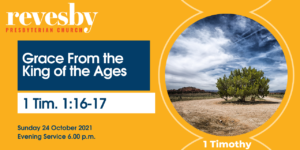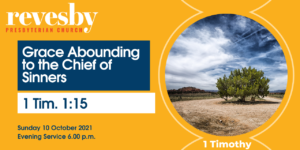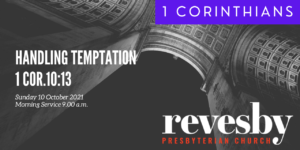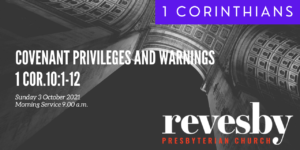Grace Embattled (1 Timothy 1:18-20)
Throughout the first chapter Paul deals with law (1:1-11, 18-20) and grace (1:12-17).
- We are to fight the good fight of faith.
- 1:18-19a; ‘war the good warfare’. For first century prophets, see 1 Tim.4:14; 2 Tim.1:6; Acts 15:32.
- the Christian life is a life of battles – Eph.6:10-13; 2










